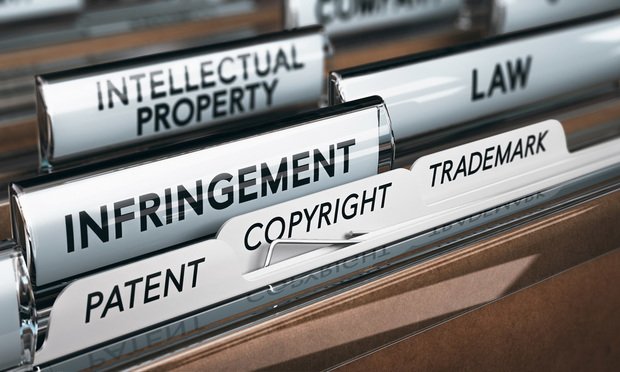This article is written by Shradha Jain, pursuing a Diploma in Intellectual Property, Media, and Entertainment Laws from LawSikho.com.
Table of Contents
Introduction
Like any other, a rapidly growing country that wishes to be at the forefront of technology and innovation start-ups are critical to Singapore’s economic growth and progress. Singapore, being one of the world’s top start-up centres, provides an appealing and stable business climate for both global and domestic businesses. Singapore may have 3,600 technology-enabled businesses by 2020 as per the action community for entrepreneurship (ace). Today, Singapore is home to at least five unicorns, including Grab, Acronis, Trax, Bigo Live, and Lazada. Carousell, Ninja Van, and PropertyGuru are among the other noteworthy businesses on the verge of becoming unicorns. Locally, more established companies are typically found in more developed industries like telecommunications, e-commerce, logistics, and fintech. Singapore has one of the strongest intellectual property protection systems in the world. This demonstrates that both intellectual property and start-ups are necessary to sustain such development, since one helps the other, propelling it up the success ladder. We shall discuss briefly in this article an overview of its IP laws, how Singapore encourages the development and registration of IP for start-ups, and how it protects them. 
IPR in Singapore : a brief overview
1. Copyright
It is a legal word that refers to the exclusive rights that are granted to authors, artists, and other creators for their works. Under Singapore law copyright does not exist in ideas, facts, or principles; rather, it exists in the expression of such ideas, facts, and principles, which cannot be duplicated. For literary, dramatic, musical and artistic works; photographs; and sound recordings, films and performances 70 years from the end year where the author died or end year of recording under Singapore Copyright Act. Along with main infringement, it also has provision for secondary infringement.
2. Patent
A patent is awarded to the owner of an invention to prohibit others from manufacturing, using, importing, or selling the invention without his permission. Unlike most countries in South-East Asia, Singapore has only one official type of patent; however, registered designs, integrated circuit layout designs, and plant varieties can be registered separately and are granted specific protection under Singaporean law. It has a ‘first-to-file system,’ which means that the first person to make an application would hold the rights to the invention. The patent-granting criteria state that the process or design must be new, inventive and have industrial application.
Two ways of registering a patent
- Domestic application: Applicants wishing to apply for a patent in Singapore.
- International application: Applicants who want to apply for a patent in more than one country can do so through the PCT, with Singapore’s Registry of Patents acting as the receiving office. Patents are valid for twenty years; integrated circuit layout designs are protected for ten years. New plant varieties can be protected for up to twenty-five (25) years, as long as the owner renews the patent for the whole duration.
- Registered design- To protect the features of shape, configuration, pattern, or decoration added to an object by an industrial process, a registered design may be acquired. It is possible to claim the filing date of an earlier application for protection of the same design submitted in a country that is a member of the Paris Convention or the World Trade Organization (WTO) in the Singapore application is lodged within six months after the previous application. As a result, start-ups should make certain that their design is not exposed to outsiders before an application is submitted. Where the design has been registered and copyright exists in the relevant design, only the Singaporean Registered Design Act will provide protection. This is done to avoid dual protection under the registered design and copyright regimes. A registered design is typically valid for fifteen years from the date of registration, with renewable every five years.
- Trademarks- A trademark is a symbol, such as a word, device, brand, form, colour, sound, or a combination of these elements, that may be visually represented and used by a person in the course of business to identify his products or services from the goods or services of another person. Three-dimensional indications (shapes) and noises can be registered as trademarks, however, trademarks based on taste and smell are not recognised. In the absence of registration, a mark used in the course of business may nevertheless be protected under the common law ‘tort of passing off.’ Statutory protection for registered trademarks can endure indefinitely if renewed every ten years. If a trademark registration is granted before the actual use of the mark, the mark must be put to legitimate use in the course of business within five years of the registration, or risk having the registration cancelled for non-use.
- Geographical indication- A geographical indication (GI) is a distinguishing mark used to identify a product as coming from the territory of a certain nation, area, or locale when its quality, reputation, or other feature is connected to its geographical origin. Geographical indications (GIs) have been used as trademarks, but no GI protection has been provided till the late 2000s. The Geographical Indications Bill (Bill No. 13/2014) was recently enacted by the Singaporean Parliament, paving the way for the GI register. Due to the lack of implementation of the GI register, an owner of GI may seek trademark protection.
- Trade secrets- Singaporean law defines trade secrets as private business knowledge that enables an organisation to gain an economic advantage over its rivals, such as a secret manufacturing method, customer information, trade volume, a secret recipe, and so on. Start-ups must also be able to demonstrate that a duty of secrecy was explicitly specified when interactions with other parties, such as by signing nondisclosure agreements or including a confidentiality clause in their agreements with other parties. This is common protection, and unlike the EC, there is no particular law for trade secret protection.
Singapore encourages the development and registration of IP
Singapore’s IP legislation and administrative framework comply completely with Trade-Related Aspects of Intellectual Property Rights (TRIPS). Singapore is a signatory to the following international treaties governing intellectual property: the Paris Convention, the Madrid Agreement, the Patent Cooperation Treaty, the WIPO Copyright Treaty, the NICE Agreement, and the Berne Convention.
1. Intellectual Property (IP) Hub Master Plan
Singapore’s government unveiled it in 2013, a ten-year plan to make it the leading location for producing, registering, and protecting intellectual property. The Singapore government suggested the implementation of an IP-Box tax scheme similar to those in the Netherlands and Ireland. Through significant financial incentives and a favourable tax structure, the Singapore government supports the development and registration of intellectual property. Singapore also has broad tax treaties with other nations for revenue generated by intellectual property, and it gives tax credits for income from countries that do not have a tax treaty with Singapore, such as the United States.
2. IPOS
The IPOS (Intellectual Property Office of Singapore) formerly known as the Registry of TradeMarks and Patents (1937-1999) is a statutory board within the Ministry of Law that was established in 2001 to implement the country’s intellectual property policy. IPOS assists inventors, entrepreneurs, and enterprises in developing, protecting, and using their inventions. To assist you in protecting your intellectual property, it refers you to IP service providers such as attorneys or consultants and gives free seminars.
3. Start-up SG
It was founded in 2017 to showcase Singapore’s thriving start-up ecosystem both locally and internationally. Start-up SG makes it easier for entrepreneurs and ecosystem partners to find and access potential channels of help. Start-up SG Network was established in 2018 to bring Singapore’s tech start-up ecosystem even closer together and to foster the growth of creative and collaborative collaborations.
The launch of these schemes, while independent, have created an enabling environment, providing additional impetus to development and protection. These actions demonstrate Singapore’s long-term commitment to fostering a friendly ecosystem while also recognising the importance of IP in start-ups.
How does Singapore defend IPR?
In addition to supporting the production and registration of intellectual property (IP) in Singapore, the government actively defends IP. IP rights are territorial, which implies that if IP is registered in Singapore, then it will be protected.
- WIPO Arbitration and Mediation Centre- It created the only office outside of Geneva, the WIPO Arbitration and Mediation Centre, in 2010. Collaboration between IPOS and WIPO helps parties to address intellectual property disputes without resorting to litigation.
- Blocking counterfeit- Singapore Customs goal is to conduct customs and trade enforcement procedures, such as checking and detaining suspected infringing items crossing the border. Border enforcement is only available for IP registered in Singapore. The IPR owner can notify Customs in writing, along with a copy of the certification of registration, of suspected import of IPR-infringing products.
- Civil litigation- In general, civil litigation may be initiated for a patent, copyright, or trademark infringements, as well as breaches of contracts concerning trade secrets and sensitive information. In such actions, the Court may award damages, an injunction, and the disposal of infringing items.
- Criminal litigation- This primarily pertains to the Copyright Act and the Trade Marks Act. The owner of the IPR has the right to file a criminal prosecution against an infringement. Alternatively, the Criminal Investigation Department’s Intellectual Property Rights Branch may pursue the infringement on its initiative. If a criminal prosecution action is successful, the infringer will be compelled by the court to pay a fine and/or serve a prison sentence.
Conclusion
Singapore has benefited from a strong intellectual property regime and is continuing to build a reputable ecosystem that is recognised not only regionally, but globally. The Intellectual Property Office of the United Kingdom (UKIPO) and the French National de la Propriété Intellectuelle (INPI) established regional IP offices in Singapore in 2013. Singapore has one of the most comprehensive legislative frameworks for protecting intellectual property rights. Singapore was placed second in the world and first in Asia in the World Economic Forum’s Global Competitiveness Report 2019 for its intellectual property protection framework. Because of these safeguards, several of the world’s largest IP-focused start-ups have chosen the nation as their preferred location.
References
- https://www.corporateservices.com/singapore/ip-protection-in-singapore/
- https://www.southeastasia-iprhelpdesk.eu/sites/default/files/publications/Singapore%20Factsheet.pdf
- https://ace.org.sg/startups/
- https://www.startupsg.gov.sg/about/
- https://lkyspp.nus.edu.sg/docs/default-source/case-studies/lkwms_series01_sg_ip.pdf?sfvrsn=5135960b_2
Students of LawSikho courses regularly produce writing assignments and work on practical exercises as a part of their coursework and develop themselves in real-life practical skills.
LawSikho has created a telegram group for exchanging legal knowledge, referrals, and various opportunities. You can click on this link and join:
 Serato DJ Crack 2025Serato DJ PRO Crack
Serato DJ Crack 2025Serato DJ PRO Crack










 Allow notifications
Allow notifications


